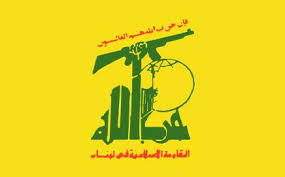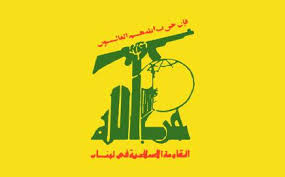
In what it described as a “major explosion” at Damascus airport, Hezbollah has confirmed its military commander, Mustafa Badreddine, was killed in Syria this week.
Hezbollah announced that it was investigating whether a “missile or artillery strike” had been responsible even as media reports in Lebanon and Israel quickly suggested the blast had been caused by an Israeli airstrike.
Since the death of his predecessor and brother-in-law, Imad Mughniyeh, Badreddine was the most senior member of the organisation to have been killed. Mughniyeh was assassinated by a joint Mossad/CIA operation in the Syrian capital in February 2008.
The Israeli government, which has authorised at least eight air strikes against targets inside Syria since the start of the civil war five years ago, did not provide any immediate reaction to the announcement. Most of the airstrikes from Israel were targeted at anti-aircraft systems that Israeli officials claimed were being moved to Lebanon, where they could pose a threat against its air force.
“He said months ago that he would not return from Syria except as a martyr or carrying the flag of victory. He is the great jihadi leader Mustafa Badreddine, and he has returned today a martyr,” Hezbollah said announcing Badreddine’s death.
“The information gleaned from the initial investigation is that a major explosion targeted one of our centres near Damascus International airport, which led to the martyrdom of Sayyid Zul Fikar [his nom de guerre] and the injuries of others. The investigation will work to determine the nature of the explosion and its causes, whether it was due to an air or missile or artillery strike, and we will announce the results of the investigation soon,” the statement added.
Badreddine was born in 1961 in the southern Beirut suburb of Ghobeiry, and rose to greater prominence after Mughniyeh’s assassination. He was nicknamed Zul Fikar, after the sword of Imam Ali, the Prophet Muhammad’s cousin and one of the most revered figures in Shia Islam.
He managed to escape from Kuwait, after Saddam Hussein’s army invaded the oil-rich emirate and threw open its prisons, where he sentenced to death in Kuwait in the 1980s over a plot to blow up the American and French embassies there during the Iran-Iraq war.
Since the inception of the group in the early 1980s, he had been involved in nearly all the group’s operations, Hezbollah said. Most of the operations were targeted at Israel which occupied Lebanon from 1982-2000.
However a cell that was allegedly responsible for the assassination of former Lebanese prime minister Rafiq Hariri on the Beirut waterfront in February 2005 was also alleged to have been led by him.
There were no comments from Israel on airstrikes it has previously launched inside Syria. The strikes had targeted anti-aircraft systems that were allegedly being transferred to Hezbollah, unnamed officials have said. Samir Kuntar, who had been jailed inside Israel for more than 30 years until his release in 2008 was also the target of the air attacks.
(Source:www.theguardian.com)
Hezbollah announced that it was investigating whether a “missile or artillery strike” had been responsible even as media reports in Lebanon and Israel quickly suggested the blast had been caused by an Israeli airstrike.
Since the death of his predecessor and brother-in-law, Imad Mughniyeh, Badreddine was the most senior member of the organisation to have been killed. Mughniyeh was assassinated by a joint Mossad/CIA operation in the Syrian capital in February 2008.
The Israeli government, which has authorised at least eight air strikes against targets inside Syria since the start of the civil war five years ago, did not provide any immediate reaction to the announcement. Most of the airstrikes from Israel were targeted at anti-aircraft systems that Israeli officials claimed were being moved to Lebanon, where they could pose a threat against its air force.
“He said months ago that he would not return from Syria except as a martyr or carrying the flag of victory. He is the great jihadi leader Mustafa Badreddine, and he has returned today a martyr,” Hezbollah said announcing Badreddine’s death.
“The information gleaned from the initial investigation is that a major explosion targeted one of our centres near Damascus International airport, which led to the martyrdom of Sayyid Zul Fikar [his nom de guerre] and the injuries of others. The investigation will work to determine the nature of the explosion and its causes, whether it was due to an air or missile or artillery strike, and we will announce the results of the investigation soon,” the statement added.
Badreddine was born in 1961 in the southern Beirut suburb of Ghobeiry, and rose to greater prominence after Mughniyeh’s assassination. He was nicknamed Zul Fikar, after the sword of Imam Ali, the Prophet Muhammad’s cousin and one of the most revered figures in Shia Islam.
He managed to escape from Kuwait, after Saddam Hussein’s army invaded the oil-rich emirate and threw open its prisons, where he sentenced to death in Kuwait in the 1980s over a plot to blow up the American and French embassies there during the Iran-Iraq war.
Since the inception of the group in the early 1980s, he had been involved in nearly all the group’s operations, Hezbollah said. Most of the operations were targeted at Israel which occupied Lebanon from 1982-2000.
However a cell that was allegedly responsible for the assassination of former Lebanese prime minister Rafiq Hariri on the Beirut waterfront in February 2005 was also alleged to have been led by him.
There were no comments from Israel on airstrikes it has previously launched inside Syria. The strikes had targeted anti-aircraft systems that were allegedly being transferred to Hezbollah, unnamed officials have said. Samir Kuntar, who had been jailed inside Israel for more than 30 years until his release in 2008 was also the target of the air attacks.
(Source:www.theguardian.com)














